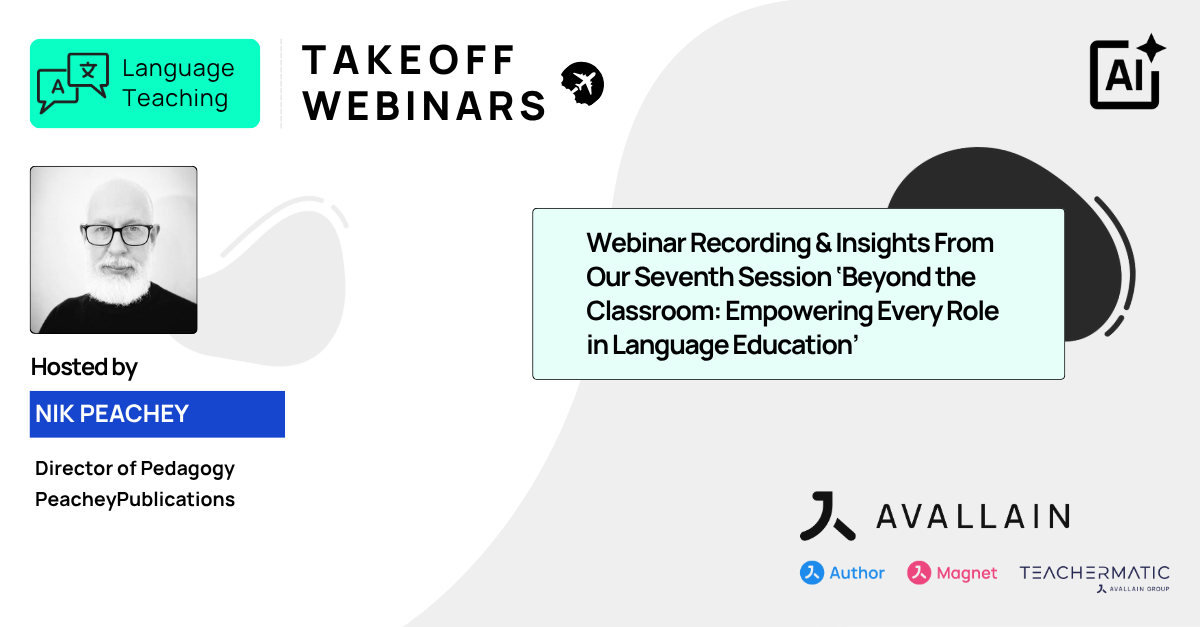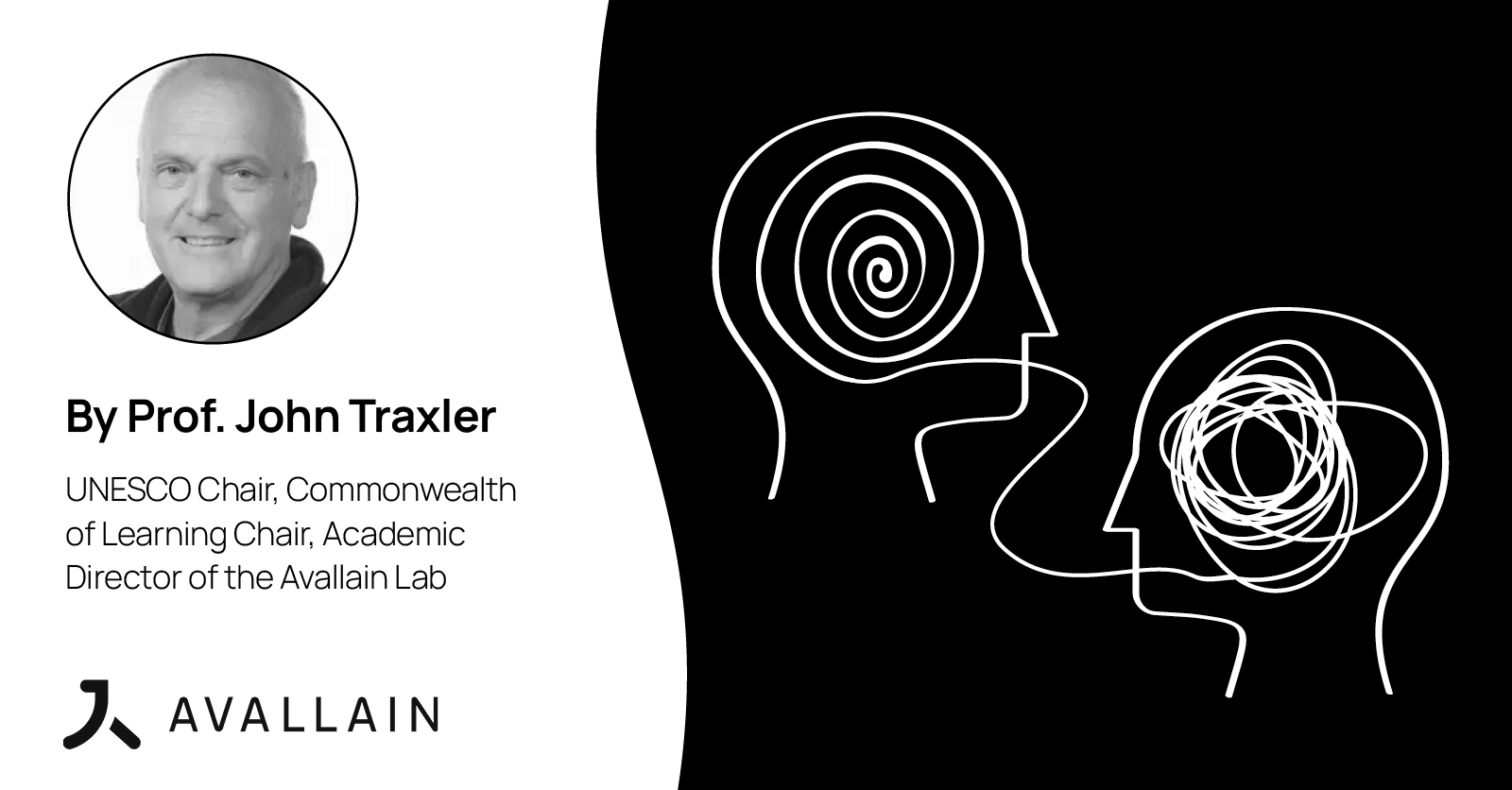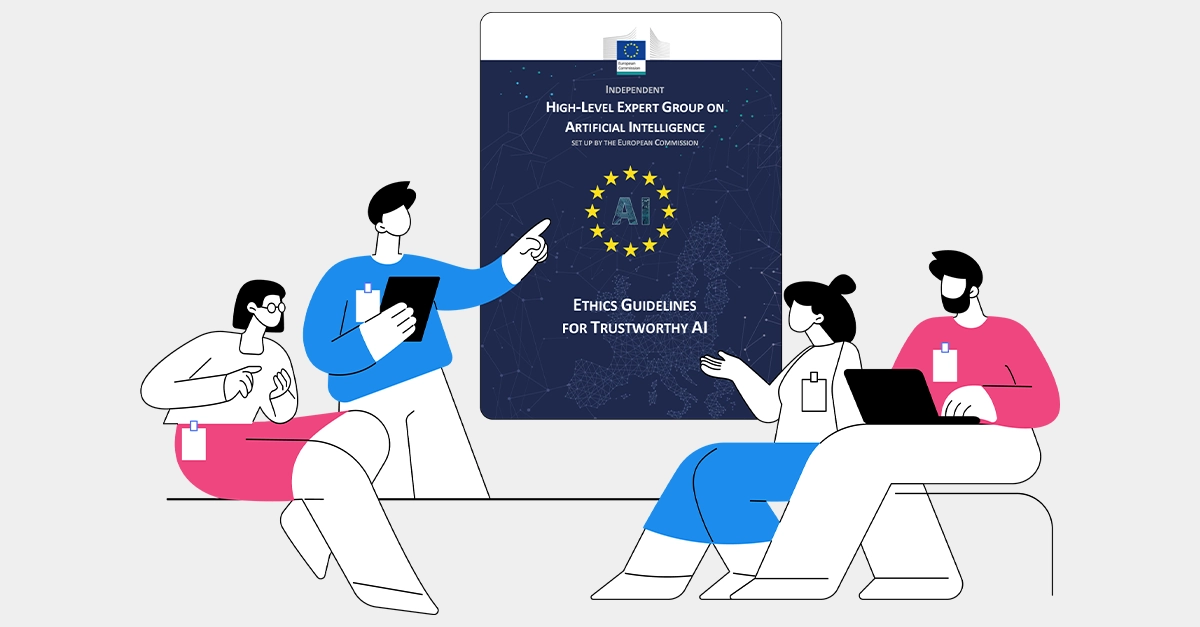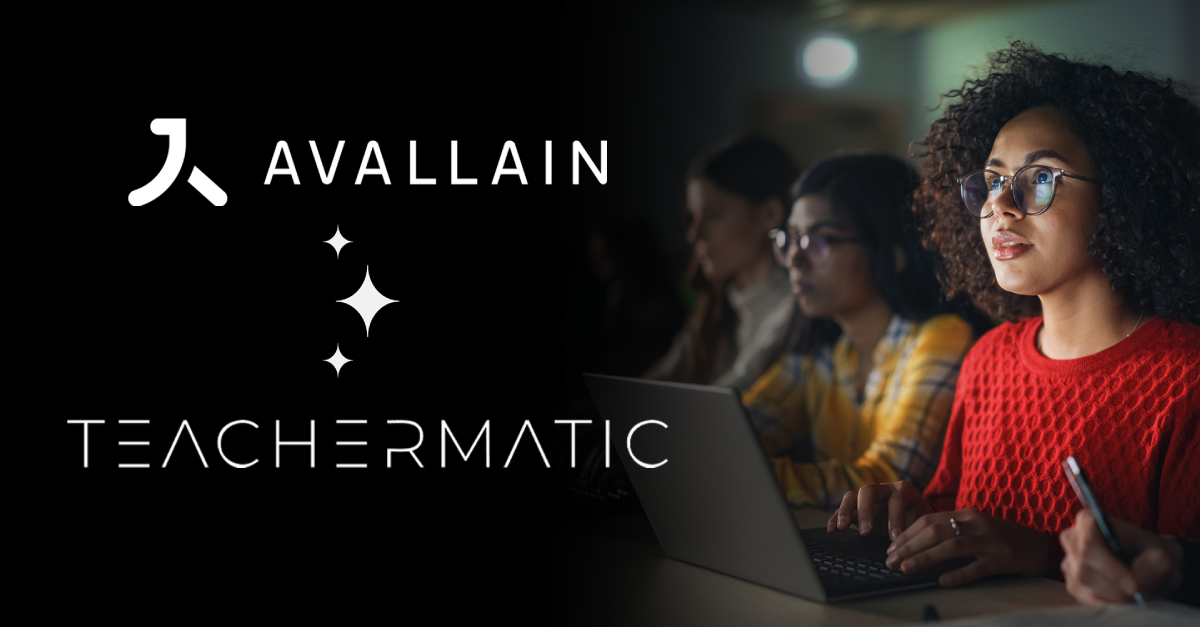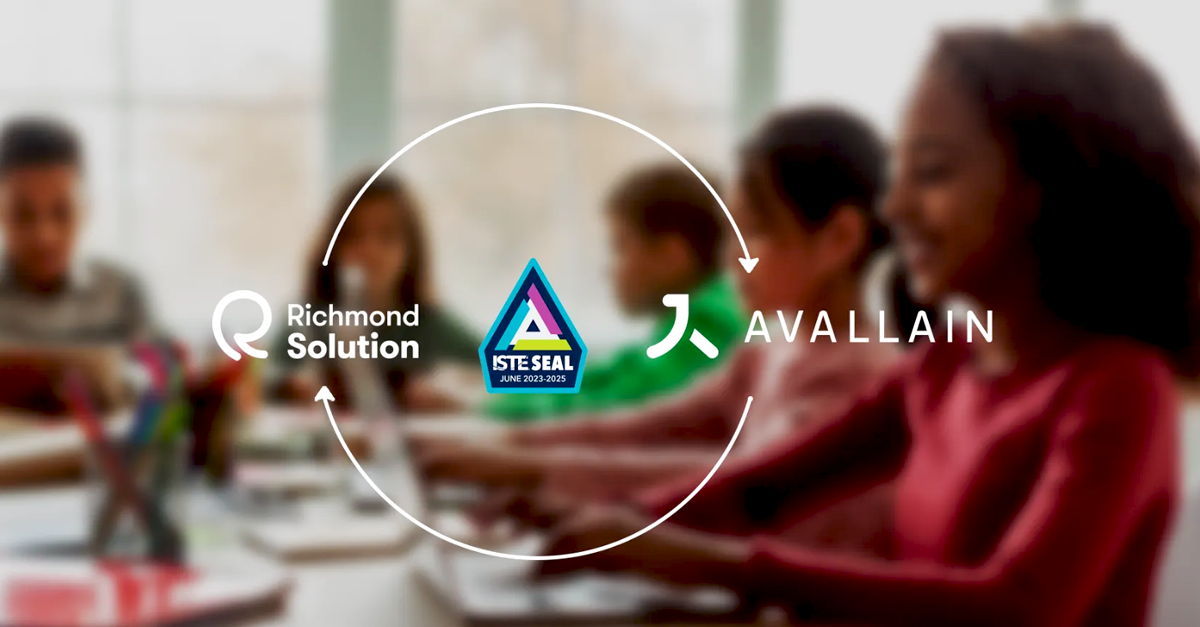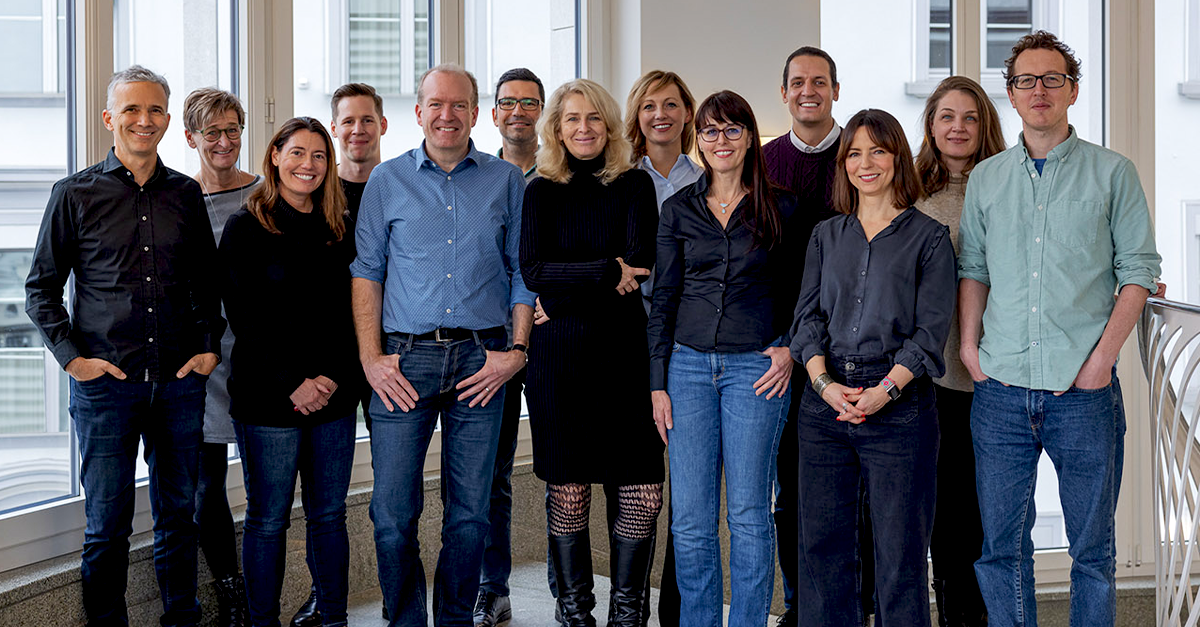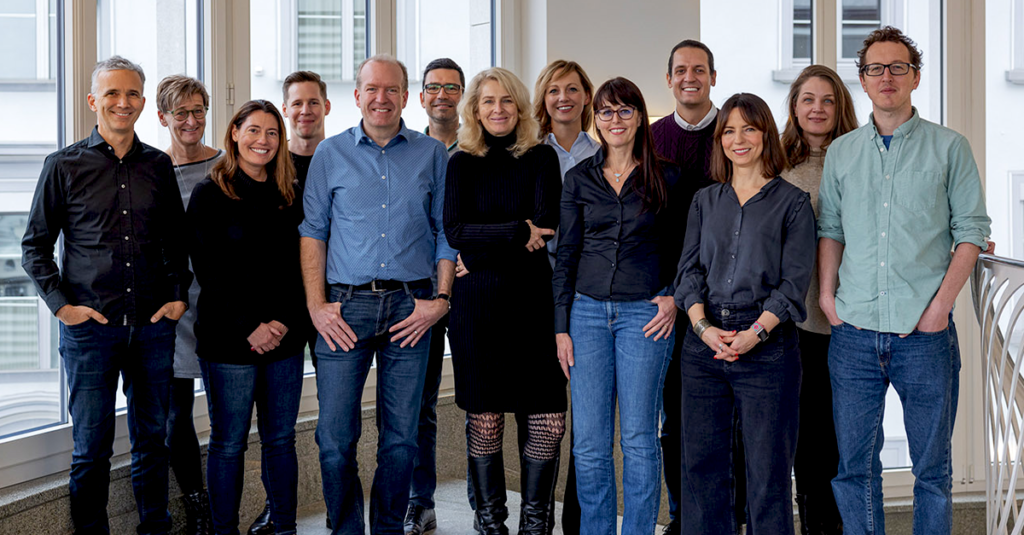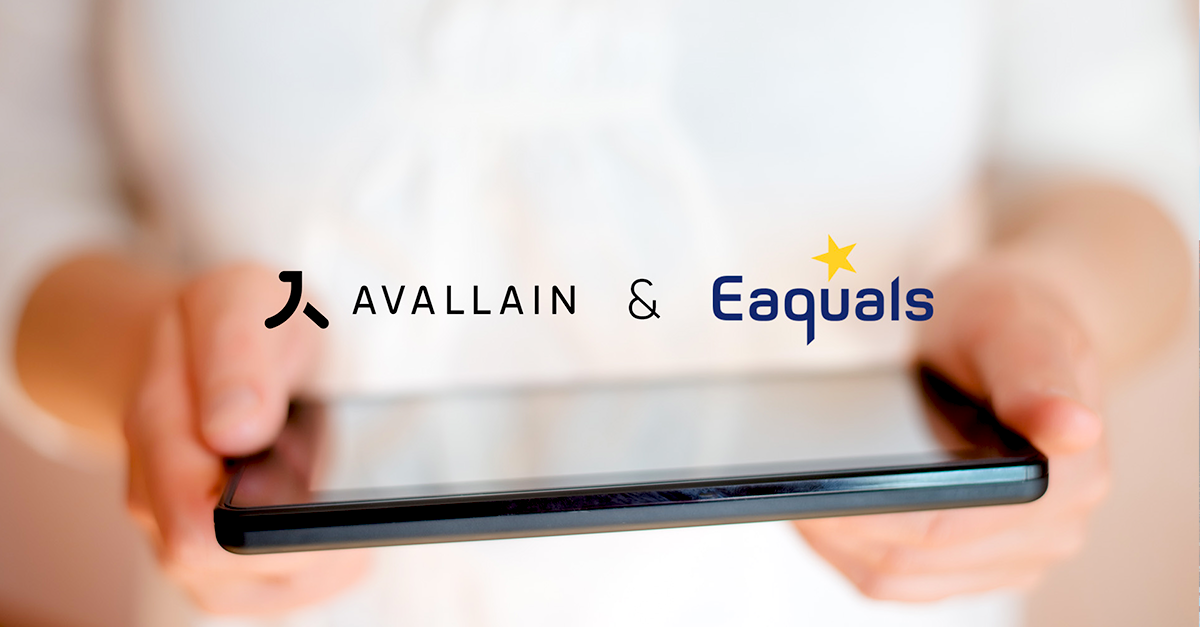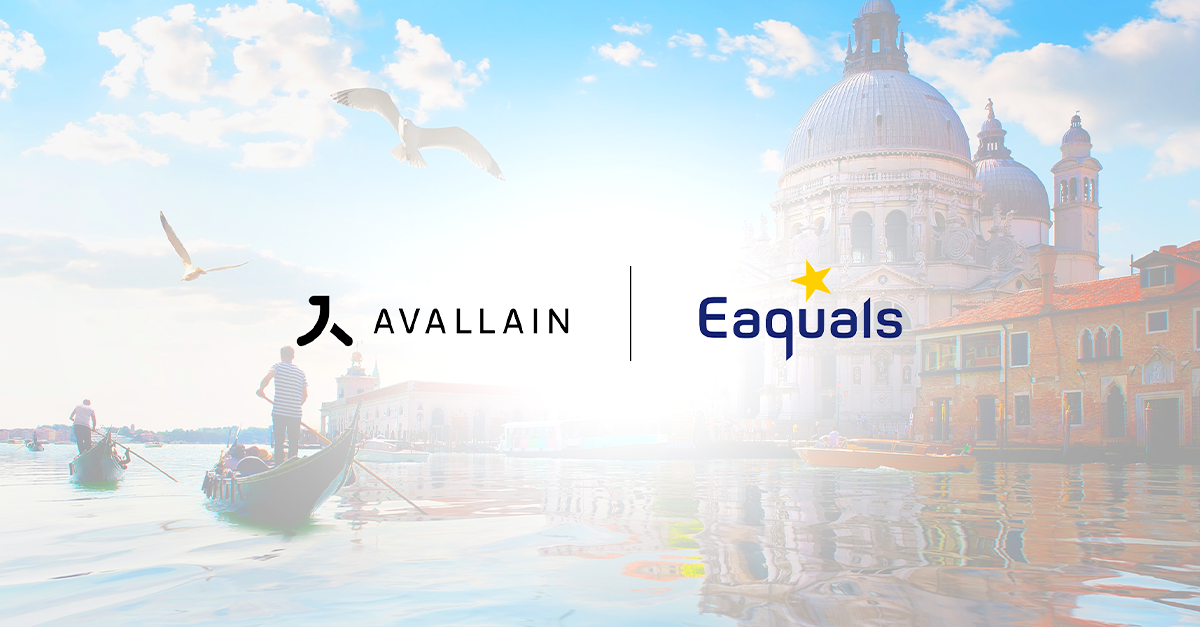Language carries assumptions, cultural context, and implicit meaning that make comprehension and translation difficult for humans and even more complex for AI to master. Expanding on the first half, this piece explores language for persuasion, showing how cultural norms, reasoning patterns and rhetorical conventions shape communication, learning and the complexities of teaching or interpreting language effectively.
AI and Why It’s Impossible to Learn or Understand Language: Cultural and Cognitive Challenges
Author: Prof John Traxler, UNESCO Chair, Commonwealth of Learning Chair and Academic Director of the Avallain Lab
This piece continues to argue that it is impossible to learn, understand or discuss what anyone else says or writes beyond the simplest, most specific and concrete level, even perhaps among people with a shared mother tongue. This makes conversation, learning, translation and reasoning more difficult than they initially seem, especially when they involve artificial intelligence.
The piece is divided into two halves. The first, ‘AI and Why It’s Impossible to Learn or Understand Language’, already deals with language as idiom, whilst the second half deals with language for reasoning. We transition from language for description to language for persuasion.
As I said in the first half of this piece, language as an idiom is a challenge for learners or translators outside the culture or community that actually hosts that idiom, and this clearly also applies to the chatbots of GenAI.
Sadly, but obviously, reasoning also depends on language, and reasoning is not usually about anything as concrete and specific as ‘the cat sat on the mat’. In fact, it seems safe to say, as we did in the previous piece, that language is mostly not about the specific and the concrete, rather that language, especially language that is in any sense important, is metaphor, simile or analogy, and each of these is based on implied notions or assumptions of ‘likeness’.
Deductive and Inductive Reasoning
Reasoning, or rhetoric or argumentation, in the West, is defined as either deductive or inductive.
Deduction, the former, is true by definition, like ‘2 and 2 is 4’ or ‘Socrates is a man, all men are mortal … etc, etc.’ This is because that is how ‘4’ and how ‘men’ are defined. It has to be true because that’s how the terms are defined, strictly speaking, not true but valid; it is a tautology; it is circular. On inspection, we may be unclear whether it is males, homo sapiens or hominids being discussed and unclear how some things are counted, clouds, for example.
The latter, induction, works from specific instances towards inferences about the general, say from ‘every dog I’ve met at the park has been friendly’, to ‘all dogs are friendly always’. Somehow, those dogs in the park are ‘like’ all dogs all the time. In making this inference, we preserve or favour one aspect and neglect others, such as ‘in the park’. Even statistical inferences work the same way; the ‘sample’ being analysed is ‘like’ the ‘population’, and somehow representative of the ‘population’, to use the statistical terminology.
But, and this is the kicker, they all depend on some tacit or shared consensus about the ‘likeness’ that is going on, that, ‘this one is like that one and like that other one and like all those others’, and they have something in general, in common, and that depends on culture, that the people within a culture or subculture basically agree. As we said, once you get slightly more abstract than cats sitting on mats, all language is metaphor, analogy or simile, sometimes in plain sight when we see ‘like’ or ‘as’ in a sentence, sometimes hidden, with only an ‘is’.
The Challenge of Abstract Thought
Plato’s ‘Allegory of the Cave’, from ‘The Republic’ (Book VII, 514a–520a), expresses the notion that we humans only experience separate poor solid instances of some higher, hidden, abstract and immutable reality. ‘The dog,’ for example, is perhaps the wrong way around; we experience each of those poor, solid real dogs and assume we can group them together as some abstract ‘dog’ and discuss them accordingly, whereas different cultures might do the grouping and thus the reasoning differently. We assume that the distinction between ‘dog’ and ‘not-dog’ is clear-cut and sharp, or the ‘park’ and ‘not-the-park’, with nothing vague and nothing in between.
Fuzzy concepts as opposed to sharp ones are another challenge for logic and reasoning, needing the duality of ‘either/or’ with nothing smeared out in between. In fact, even ‘park’ or ‘dog’ might not be so clear; are feral dogs or wild dogs included and is Hampstead Heath a park? We could be pragmatic and use the rule-of-thumb attributed to Indiana poet James Whitcomb Riley (1849–1916), ‘When I see a bird that walks like a duck and swims like a duck and quacks like a duck, I call that bird a duck.’ So Hampstead Heath is a park; a car park is not.
One way or another, these mental processes do not generate new knowledge; they expose and perhaps distort knowledge already beneath the words being used.
Examples of Culture Shaping Understanding
To take some specific examples where different words are used to describe basically the same process. That is, the process of culture shaping reasons, of words not describing our experiences but shaping them:
Hammer and nail: Abraham Maslow said, ‘If the only tool you have is a hammer, you tend to see every problem as a nail,’ meaning the extent to which preconceptions or interpretations shape understanding or analysis, the solution shaping the problem.
Evolution and creation paradigms: Creationists argue that God created fossils to test the Christian faith, whilst evolutionists argue that fossils were the product of sedimentary deposition. The culture of a specific community, whether creationist or evolutionist, determines how it understands the evidence rather than the evidence determining the understanding.
Policy and evidence: The (cynical) notion is that ‘evidence-based policy formulation’ is often ‘policy-based evidence formulation’, a suspicion familiar to many of us who have worked for ministries and ministers; that the interpretation of evidence precedes the gathering of it, and of course, logically speaking, there is no evidence for evidence, that would be circular, it would be a logical fallacy.
Personal construct theory: Those ways, major or minor, that individuals use to understand or organise their experiences, those dogs in the park, for example, partial or over-simplified or over-generalised explanations that help us live our lives.
We might use different words, paradigms, policies, cultures or constructs, for example, but these are all essentially the same process at work: words actively shaping experience rather than passively describing it. I admit to being on shaky ground when analysing the workings of words with words, but what choice do I have? The aim was to point out, however weakly, the difficulty that GenAI might have in conversation, translation and education.
The Principle of Linguistic Relativity
The Sapir-Whorf Hypothesis, aka the ‘principle of linguistic relativity’, is relevant here. It is the notion that language shapes thought and perception, meaning speakers of different languages may think about and experience reality differently, in mutually incomprehensible ways, and may never truly understand each other.
The Hypothesis suggests that a language’s structure influences how its speakers conceptualise their respective worlds. In essence, it suggests that language shapes thought and perception, meaning speakers of different languages may think about and experience reality differently. The language we learn influences our cognitive processes, including our perception, categorisation of experience and even our ability to think about certain concepts.
There are two versions. The strong version of the hypothesis proposes that language determines thought, meaning that thought is impossible without language. A provocative view, rejected mainly by linguists and cognitive scientists, but resonating with George Orwell’s idea of Newspeak, which we mention later. The weak version, proposing that language influences thought, suggests that whilst thought is not solely determined by language, it is significantly shaped by it, a more acceptable interpretation.
So we have differing vocabularies for snow in English. Languages like Inuit suggest that English speakers might have a less nuanced understanding of snow-related concepts. Secondly, some languages assign grammatical gender to objects, potentially influencing how speakers perceive those objects; meanwhile, the Chinese ideogram or character for ‘happiness’ was derived from ‘woman in house’, an interesting trajectory from the concrete to the abstract.
The point about Orwell is that the appendix in his novel ‘1984’ describes a political system that, by eliminating problematic or challenging words from its language, Newspeak, eliminates problematic or challenging thoughts from the population, suggesting again that the possibility that language can shape culture (or society in this case), or Orwell thought so. Any resonance with current concerns about political and corporate influence on the news media is, of course, purely coincidental.
Cultural Dimensions and the Definition of ‘Culture’
At some point, we ought to introduce ‘cultural dimensions’ and Geert Hofstede’s work, among others, as much of this piece mentions or implies culture as a fundamental mechanism in shaping language. Being abstract, we can only define ‘culture’ using either metaphors or other abstractions, so we will settle for something simple, ‘the way we do things around here’, ‘here’ being our society, our friends, our organisation, our profession or wherever else a group of people have shared values.
Cultures are obviously different from each other; ‘cultural dimensions’, based on Hofstede’s work, are a tool for describing in what respects and by how much they differ. So we might say that some cultures are risk-taking, others risk-averse; some are consensual, others authoritarian; some take the long view, others the short one; some are individualistic or even selfish, others communal and collectivist, and so on, giving us scales by which to calibrate different cultures.
So these are alternative perspectives, language and conversation shaping culture and thought, and the opposite, culture and thought shaping conversation and language, or perhaps a dynamic between the two.
Culture, Reasoning and the Diffusion of Innovations
If we are to use language to reason, question, analyse, judge, evaluate and critique, rather than merely locate the cat, then we have to recognise how language is shaped by culture. This may be national culture, regional culture, gender culture, class culture, generational culture, ethnic culture, or indeed a mixture of all of these, as they still shape language.
Reasoning, questioning, analysing, judging, evaluating and critiquing are essential components of higher-level learning and of higher-order language learning, if learning is to be about reasoning as well as rote reciting. Cultural dimensions, however, suggest that some cultures may be less tolerant of dissent and the outcomes of reasoning than others (and may not even have the language to express it), or might find some conclusions less palpable, less conforming or more risky.
A further complication is the theorising behind the Diffusion of Innovations, which suggests that changes to opinions, attitudes or beliefs, in effect acceding to reasoning or argumentation, are all dependent on various factors; culture is one of these, as we can deduce from Hofstede’s ‘cultural dimensions’, for example, the risk-aversion/-acceptance and the consensual/authoritarian dimensions. There are, however, others, for example, the ‘relative advantage’ of the changed opinion, attitude or belief and its ‘trialability’, ‘observability’, ‘compatibility’ and ‘complexity’ are also factors in acceding to an argument or reason representing the changed opinion, attitude or belief. The pure logic of GenAI may well see these complications as unreasonable.
Language and Its Cultural Influence
The work of linguist Robert B. Kaplan comes at this from a different direction. Analysing essays from English, Romance, Semitic and Asian students suggested that every language is influenced by a unique thought pattern characteristic of that culture, or by the collective customs and beliefs of its people.
Rhetoric, argumentation and thus reasoning exhibit culturally distinct patterns. Rhetorical conventions vary across cultures, affecting how students compose essays. English rhetoric in this depiction follows a linear, logical structure influenced by Western philosophical traditions. This harks back to our depiction of inductive and deductive reasoning, whilst other cultures may employ parallelism, helical, zig-zag or indirect approaches in writing, leading to different expectations in composition and argumentation, ones that make less sense to the processes of GenAI.
Western Reasoning
Interestingly, a paper from Harvard published in November 2025 observes that, ‘LLM responses … their performance on cognitive psychological tasks most resembles that of people from Western, Educated, Industrialized, Rich, and Democratic (WEIRD)’
Returning briefly to Western, or WEIRD, reasoning: whilst we have described the established ways of reasoning correctly, the deductive and the inductive, there are also Western ways of reasoning incorrectly. When learning logic, you start with the fallacies of irrelevance: fallacies that introduce irrelevant information to distract from the main argument.
For example:
Ad Hominem: Attacking the character or personal attributes of an opponent rather than the argument itself.
Appeal to Emotion: Manipulating emotions, such as pity or envy, instead of using logical reasoning to win an argument.
Ad Populum: Claiming something is true or right because many people believe it.
The Red Herring: A distracting point to divert attention from the actual issue.
Straw Man: Misrepresenting an opponent’s argument to make it easier to attack.
There are also Fallacies of Weak Induction, such as:
The Post Hoc Fallacy: Assuming that because one event followed another, it must have caused it.
The Slippery Slope: Asserting that a small first step will lead to a chain of related, often negative, events.
Finally, there are Fallacies of Presumption, including:
Circular Reasoning: Using the conclusion as a premise to support a conclusion.
False Dichotomy: Presenting only two possible options when more options exist.
Cultural Significance of Logical Flaws
Our point is that these errors, even if valid within a Western context, may not be obvious or convincing to a non-Western language learner accustomed to reasoning differently, and that their weight may be less or different in other cultures. So, more hierarchical or authoritarian cultures may find Ad Hominem arguments perfectly valid when made by someone with sufficient status, whilst more consensual or communal cultures might be happy with Ad Populum arguments rather than standing out in the crowd. Additionally, cultures are probably each on a continuum from emotional to rational, and this, too, will determine how they react to reasoning and argument.
Culture or individual cultures are, however, not immutable. According to historian Ian Mortimer, the Elizabethan hand mirror and the vernacular Bible, Tyndale’s in English and Luther’s in German, moved the needle towards greater individuality or individualism and lessened communality or collectivism in their societies, as the mobile phone selfie has done more recently. Relating individually to AI chatbots might have similar consequences, as individuals use them for emotional and intellectual support, or it might involve a completely different cultural dimension.
Other Linguistic Dimensions
Another attribute of language is lexical distance, the distance and differences within and between language families. So, for example, German is very close to Dutch but distant from Chinese, so German speakers might struggle to learn Chinese but not Dutch. Are GenAI chabots somewhere amongst the Anglo-American, low-context, consultative and slightly out-of-date languages, lexically distant from many other language families?
This linguistic metric might also apply to different literary genres or, indeed, different literary authors. Is James Joyce lexically distant from Ernest Hemingway, or a haiku from a sonnet, and thus more or less difficult to understand or translate, especially for chatbots rooted in the GenAI culture they inherit from their trainers?
Languages are also sometimes classified on a continuum from high-context to low-context, with greater or lesser baggage, background, assumptions and preconceptions, and metaphorically expecting more or less bandwidth for successful comprehension or translation. Clearly, low-context language learners will struggle to hear, for example, the irony, euphemism, hyperbole or sarcasm at work in high-context languages. In a high-context language, the neurodiverse will have much less metaphorical bandwidth; they, me, in this context, are low-context, missing cues and signals from their higher-context culture or colleagues.
The Challenge for Educational AI
It is difficult to imagine how to converse with each other with all of these issues going on, so perhaps we should spend more time talking about the cat sitting on the mat and less time on democracy and freedom, and perhaps, for safety’s sake, conversations with GenAI chatbots should also stick to cats. Language is not as simple as it seems, nor is learning it or teaching it, nor hoping that GenAI will be good at either.
The challenge for educational AI is how to proceed safely, from helping learners with the specific and concrete to the abstract and general, from learning about cats to learning about freedom.
The mention of ‘safely’ does, however, add the additional element of ‘harm’. This piece was not really about the ethical dimension of educational AI. This too can be tackled, like our account of deduction and induction, from the top down, from abstract general principles, such as beneficence, to the concrete and specific, such as bomb-making recipes, or from the bottom up, from a long list of concrete and specific misdemeanours, to some abstract general principle that unites them.
Either way, we hope AI can replicate human reasoning, but human reasoning is flawed, and those flaws will likely be replicated in the training of GenAI. This is precisely the two approaches being explored and investigated at Avallain Lab.
About Avallain
For more than two decades, Avallain has enabled publishers, institutions and educators to create and deliver world-class digital education products and programmes. Our award-winning solutions include Avallain Author, an AI-powered authoring tool, Avallain Magnet, a peerless LMS with integrated AI, and TeacherMatic, a ready-to-use AI toolkit created for and refined by educators.
Our technology meets the highest standards with accessibility and human-centred design at its core. Through Avallain Intelligence, our framework for the responsible use of AI in education, we empower our clients to unlock AI’s full potential, applied ethically and safely. Avallain is ISO/IEC 27001:2022 and SOC 2 Type 2 certified and a participant in the United Nations Global Compact.
Find out more at avallain.com
_
Contact:
Daniel Seuling
VP Client Relations & Marketing
dseuling@avallain.com
